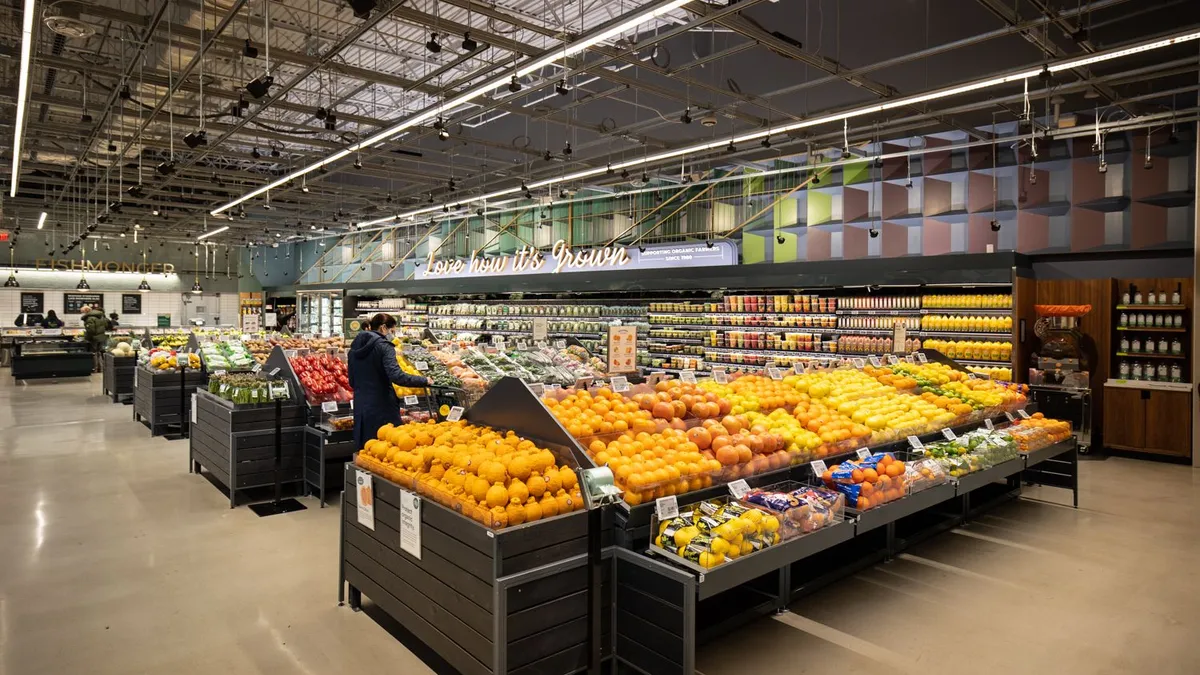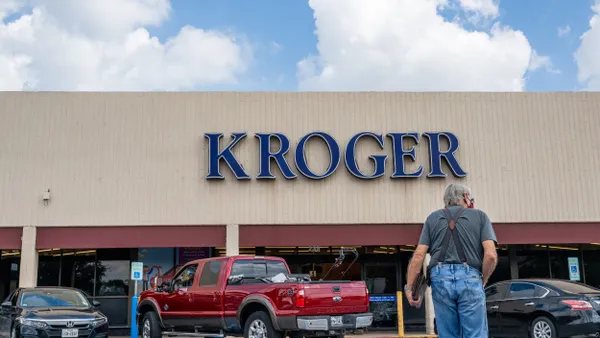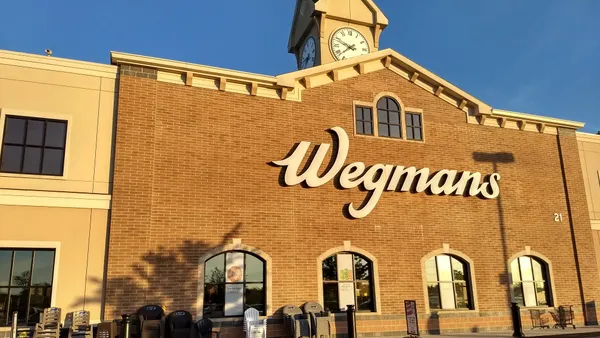Dive Brief:
- Whole Foods Market announced Monday its new pollinator policy for its fresh produce and floral purchasing aimed at supporting pollinators like honeybees, wasps and butterflies.
- The specialty grocer outlined goals it plans to reach by 2025, including implementing an Integrated Pest Management system and eliminating the use of certain pesticides and chemicals.
- This is the latest updated sourcing standard from Whole Foods as it continues to advance itself as a sustainability-focused grocer.
Dive Insight:
Whole Foods’ new pollinator policy aims to support honeybees as well as native pollinators like bumble bees, wasps and butterflies that are essential to the food system and biodiversity, according to the press release.
The new policy applies to all Whole Foods’ fresh produce and floral product suppliers, excluding wholesalers, as it aims to meet two benchmarks by 2025. First, the grocer will require all fresh produce and floral growers to implement an Integrated Pest Management system, which “prioritizes preventative and biological pest control measures” as well as lowers the need for chemical pesticides.
Second, Whole Foods will prohibit the use of nitroguanidine neonicotinoids in all potted plants the grocer sells. In addition, Whole Foods will encourage all of its fresh produce and floral suppliers to phase out these same pesticides, because they are particularly harmful to pollinators, the grocer’s pollinator policy says.
This pollinator policy builds on Whole Foods’ commitment to organics, the grocer said, adding that a report from The Organic Center report in 2015 noted that organic farming practices have been effective in maintaining the health and population of crop pollinators, such as honeybees.
Whole Foods also has other initiatives aimed at supporting the pollinator population. For example, its Whole Kids Bee Grant Program assists schools and non-profit organizations in getting support for educational beehives and bee programming, allowing students to observe the pollinators up close.
The specialty grocer has been continuously working to make its supply chain more sustainable. In 2021, Whole Foods launched its Sourced for Good supply standard seal to help its shoppers identify products that support workers, communities and the environment. In its impact report released this summer, the grocer noted that it created and circulated packaging guidelines last year to suppliers to make packaging more sustainable for private label, food service and branded primary product packaging.













